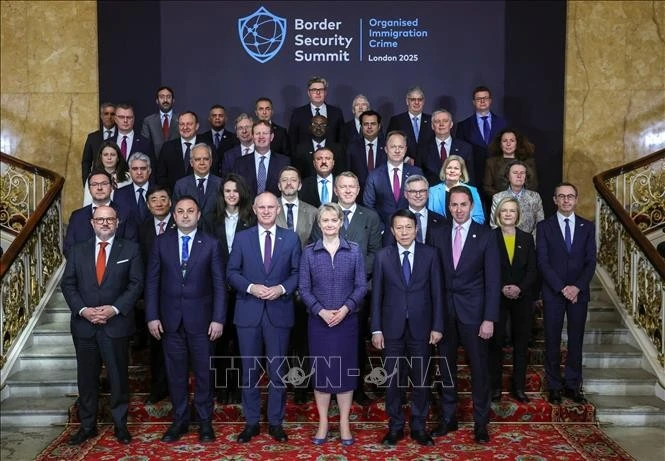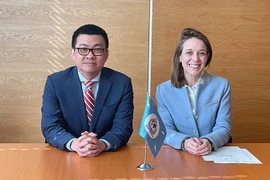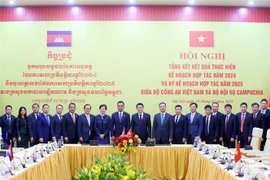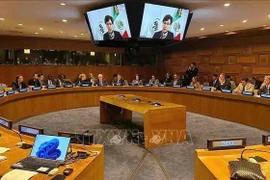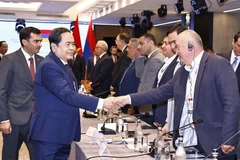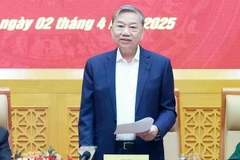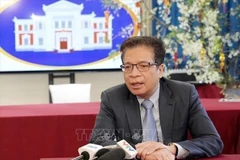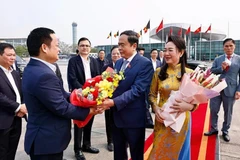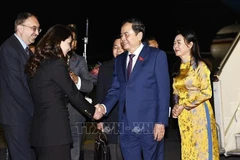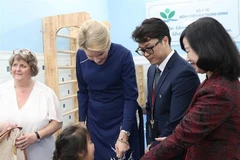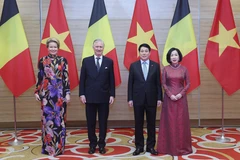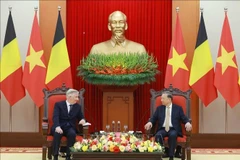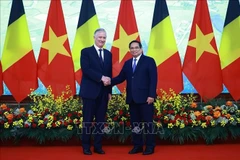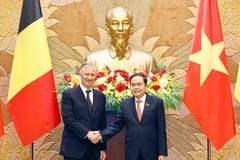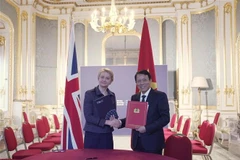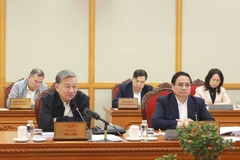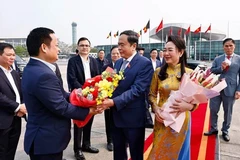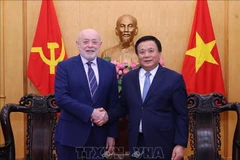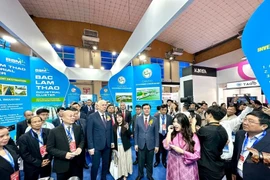London (VNA) – Minister of Public Security General Luong Tam Quang attended and delivered an important speech at the Border Security Summit on Organised Immigration Crime held in London, the UK on March 31.
Within the framework of the conference, Quang participated in sessions on combating human trafficking and cybercrime, and preventing the financial resources of criminal groups.
The minister emphasised that the rapid development of groundbreaking technologies such as artificial intelligence (AI), cloud computing, big data, and fast data has profoundly transformed cyberspace and human life in both quality and scale.
However, alongside undeniable benefits, these advancements in information technology, along with smart services and applications in cyberspace, have also introduced significant potential risks to national security.
In Vietnam, criminals have been taking full advantage of social media and online platforms to deceive and lure Vietnamese citizens into working abroad with promises of "easy work, high wages" and "stable income." However, upon arrival, victims are coerced into working in casino businesses or engaging in online fraud schemes.
In response to this situation, Vietnam has issued various policies, legal frameworks, programmes, and important action plans to combat human trafficking and illegal immigration. The country has implemented comprehensive preventive and enforcement measures, demonstrating a firm commitment to eliminating this type of crime and contributing to the goal of “protecting human security.”
Local authorities have also intensified efforts to raise public awareness by disseminating legal regulations on immigration and overseas employment, and provided warnings about risks, consequences, and common tactics used by perpetrators to lure individuals into illegal immigration, residency, and employment abroad. These efforts aim to enhance public vigilance and proactive prevention across all social groups.
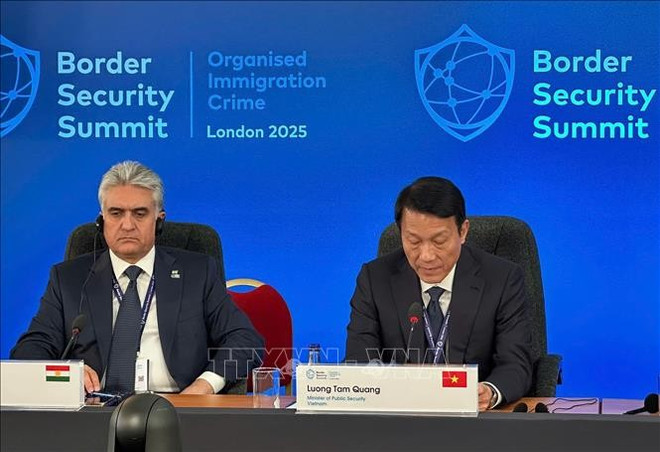
To strengthen international cooperation in law enforcement, the Vietnamese representative stressed that efforts to combat transnational cybercrime, including human trafficking, must be conducted based on the fundamental principles of the United Nations Charter and international law, and respecting national independence, sovereignty, and non-interference in the internal affairs of each country in cyberspace.
Calling for the review and refinement of bilateral and multilateral international agreements to establish a legal foundation for combating these crimes, Quang proposed law enforcement agencies worldwide enhance their cooperation, promptly share information, and coordinate efforts to combat and prevent criminal activities, including disrupting financial sources and dismantling recruitment networks that lure individuals into illegal immigration, particularly those operating through closed online groups.
He also highlighted the need for countries to focus on identifying and clarifying the nature, causes, conditions, locations, and trends of cybercrime to implement preventive measures early and from afar. Additionally, law enforcement agencies should strengthen the management of immigration, oversee the residence, study, and employment of foreigners within their territories, promptly address immigration-related issues, and ensure the security and safety of foreign nationals in each other's countries.
Countries with experience in combating cybercrime and human trafficking should also provide support in training, capacity building, and organising conferences and workshops to share best practices in developing and implementing prevention programmes and projects. Furthermore, they should offer modern specialised equipment and tools to other nations to ensure timely assistance and narrow gaps in cybercrime prevention and enforcement capabilities, Quang added./.
